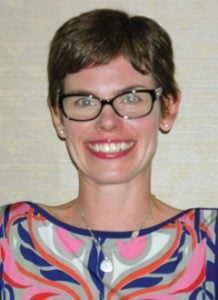
This week on the Heinemann blog, we’re sharing a series on Language in the Classroom. The series was inspired by an article published by NPR on Sunday, Oct. 23, 2016, on the ways we teach English Learners in our country. While the NPR article was specific to English Learners, our hope is to use that as a jumping off point to broader topics of language instruction in the classroom. Each day this week we will feature articles, excerpts and insights directly from Heinemann authors and affiliates that further the conversation surrounding language diversity in the classroom, the challenges it presents, and what we know works.
Sharing Power for Authentic and Effective Language Study
Adapted from Celebrating Diversity Through Language Study
by Jen McCreight
A critical component of language study is to share power with students and families. While teachers typically hold the most power in classrooms, and while their expertise is essential to moving classroom learning forward, language study is a platform for instruction that encourages you, your students, and their families to share this power, and for all to become more active participants in the classroom. If children feel their teachers and peers value their ideas, consider their perspectives, and share academic and social power with them, they are more likely to focus on and learn the information at hand.
Teachers and students’ families also share power. As Henderson et al. (1) have noted, students’ academic achievement is positively affected when children and families engage in school- and standards-based projects and inquiries together. Language study’s focus on family–school partnerships sets up an environment in which students find an increased connection between school and home, and that is conducive to increased retention of information. In working together, teachers, parents and students increase the likelihood that students will not only recall and remember what they learned about words in their world, but also that they will care about the underlying reasons for such categorization, as they learn the intricacies of negotiating linguistic codes in a variety of places and with a variety of people.
While it is exciting to think about how you and other teachers might incorporate language study into classrooms, individual teachers working for change in grammar instruction will likely face resistance in the form of district- or state-adopted policies and programs. Policy change is necessary, toward a reconstruction of grammar study at the district, state, and national levels, if students are to develop a nuanced, long-term ability to navigate effectively between the multiple codes that are part of their daily lives. As Freire (2) said:
many political and educational plans have failed because their authors designed them according to their own personal views of reality, never once taking into account . . . the men-in-a-situation to whom their program was ostensibly directed.
This is often the case with language study, as those creating workbooks and test questions represent the voices of those already in powerful positions, unaware of the implications inherent in underrepresenting the multiple codes children employ every day in speaking to others. It is critical that we build upon and learn from our students’ out-of-school lives, and just as we do in all other subject areas, it is our job to honor their backgrounds while adding tools to their “linguistic toolbox” (3). An effective approach to grammar study involves discussion, exploration, and social action projects centered on students’ lives.
1. Henderson, Anne T., Vivian Johnson, Karen L. Mapp, and Don Davies. 2007. Beyond the Bake Sale: The Essential Guide to Family--School Partnerships. New York: New Press.
2. Freire, Paulo. 1972. Pedagogy of the Oppressed. Translated by Myra Bergman Ramos. New York: Continuum. (original work publishing 1968.)
3. Wheeler, Rebecca, and Rachel Swords. 2004. "Codeswitching: Tools of Language and Culture Transform the Dialectically Diverse Classroom." Language Arts 81 (6): 470--80.
 Jen has eight years of experience teaching kindergarten and first grade, and is currently an Assistant Professor at Hiram College in Hiram, OH. She teaches Early Childhood Education courses, and enjoys working with her students and area teachers to honor and build upon language diversity within elementary school classrooms. Jen holds a Ph.D in Language and Literacy Education from the University of Georgia.
Jen has eight years of experience teaching kindergarten and first grade, and is currently an Assistant Professor at Hiram College in Hiram, OH. She teaches Early Childhood Education courses, and enjoys working with her students and area teachers to honor and build upon language diversity within elementary school classrooms. Jen holds a Ph.D in Language and Literacy Education from the University of Georgia.


